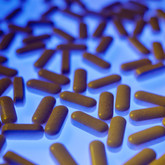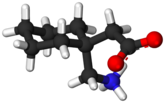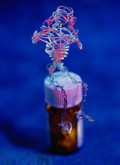Generics/Research
|
Posted 23/08/2013
Abstract
The registration of generic formulations in the EU is governed by regulatory authorities in the respective European countries. Before a generic drug can be registered, bioequivalence to the branded formulation has to be demonstrated, i.e. 90% confidence intervals of area under the curve (AUC), and Cmax should fall within the 80–125% acceptance range. Comparative studies with other generics are not required. In order to establish whether a generic medicine is interchangeable with other generic formulations under current regulations, the Dutch regulatory authority conducted a single- dose, four-way crossover comparative bioavailability study with four gabapentin formulations, i.e. the branded formulation and three generic drugs, as test medication. The results showed that all four formulations were bioequivalent to each other, and that no interchangeability issues would result from switching.





















